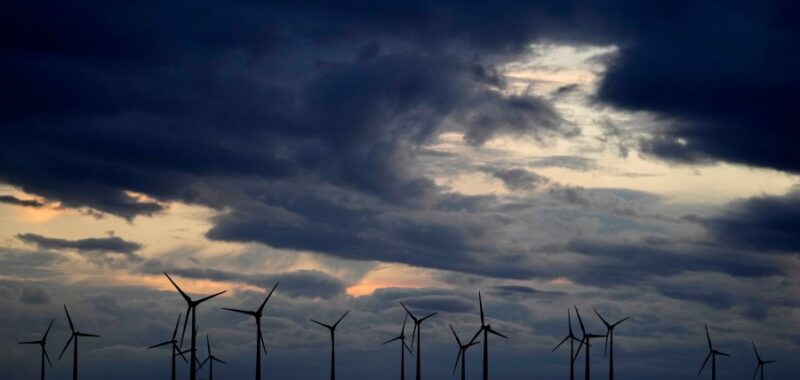
Since the 2015 signing of the Paris climate agreement, the European Union has become the government standard-bearer for the climate change movement, plunging headlong into the legal and regulatory work required to achieve the United Nations’s global emissions targets.
Europe aspires to be the first carbon-free continent on the planet by 2050 and has set aggressive plans to cut the aggregate emissions of its 27 national members by 57 percent before 2030 based on a 1990 reference point. Mirroring the old continent, the U.S. also hopes to achieve a net-zero emissions economy by 2050, with an interim national goal of reducing U.S. net greenhouse gas emissions by 50 to 52 percent by 2030 versus a 2005 baseline.
To further conscript the private sector into their government’s climate goals, Europe’s financial regulators have passed new rules such as the Corporate Sustainability Reporting Directive and the Sustainable Finance Disclosure Regulation, which mandate climate and other environmental reporting by companies and financial institutions alike to ensure that capital dollars only flow to so-called sustainable activities.
Thus, according to the U.N.-supported advocacy group, the Principles for Responsible Investment, “The EU stands at the forefront of sustainable financial policy.”
Here too, the Biden administration has the U.S. playing catch-up.
The environmental, social and governance (ESG) investing movement in this country has integrated climate policy into the financial sector and launched countless net-zero Wall Street alliances in recent years. It is now moving into a more rigid and prescriptive phase on the back of government force, passing regulations to categorize virtually every sector of the economy based on a carbon emissions standard.
Using a whole-of-government approach, the Biden White House has weaponized federal agencies against the fossil fuels industry over the last three years, including financial regulators such as the Securities and Exchange Commission.
In March 2024, the SEC finalized climate disclosure rules that will require most publicly listed U.S. companies to report all the purported climate-related physical and transition risks to their businesses, along with the amount of greenhouse gas emissions generated by their operations. By imposing a climate litmus test on both issuing and investing companies, the SEC is helping to force the clean energy transition by stigmatizing and starving fossil fuel producers of the external funding and market access needed to grow their businesses. As in Europe, defunding oil, gas and coal companies represents an effective means to the end of shrinking domestic hydrocarbon supply and cutting national emissions.
Decarbonization, however, rests on a dangerous assumption. There is no evidence that economic growth can be decoupled from fossil fuels or carbon emissions, or that the current politically driven clean energy transition can even be completed as dialed based on present technology. As Europe’s recent experience shows, an increasing reliance on renewable wind and solar generation capacity only serves to destabilize power grids and raise the average cost of electricity.
Europe currently boasts some of the highest residential electricity prices in the world. Moreover, by banning hydraulic fracturing (fracking) and shutting down baseload coal power plants, the continent has demonstrated that countries that fail to secure and control their supply of fossil fuel energy — either by developing their own natural resource endowments or by negotiating reliable sovereign delivery chains — increase their exposure to global oil and gas price volatility and geopolitical developments, the combination of which can undermine domestic industry and heighten national security risk.
Meanwhile, more expensive fossil fuel energy also leads to higher consumer price inflation, since hydrocarbons are used to make, transport and facilitate almost every good and service in developed economies. Thus, increases in oil and gas prices shrink real personal income and living standards.
Germany offers a textbook example of the economic reality of decarbonization. Over the last decade, aggressive climate policies and energy supply mismanagement by the German government have led to a downward spiral of deindustrialization and degrowth for the world’s fourth-largest economy.
Rising electricity and skyrocketing natural gas prices, particularly since Russia’s February 2022 invasion of Ukraine, have had a negative impact on the competitiveness of the German manufacturing sector, resulting in the loss of factory jobs and an increase in corporate bankruptcies.
Nonetheless, Germany remains committed to shutting down all the country’s remaining coal and even its nuclear power plants by the end of this decade.
Attempts to decarbonize other financial markets will have similar unintended consequences.
Carbon-based financial regulations, such as the climate disclosure rules passed by the SEC and its European regulatory counterparts, will make the capital markets more hostile to traditional energy companies. As with the macroeconomic myth of a clean energy transition, there is no empirical data to show that reducing greenhouse gas emissions will lead to better financial performance for individual companies or better portfolio returns for investors.
Rather than de-risking the financial markets through disclosures, these rules will inject more volatility by accelerating the shutdown of fossil fuel production, thereby weakening underlying economic fundamentals, restricting investment options and further eroding personal wealth and retirement savings. Instead of just shifting investment dollars away from carbon-emitting companies, the end result of these climate rules may be to drive capital away from the developed financial markets altogether.
It is long past time that government officials be required to show proof of concept for their climate policies and regulations, rather than simply rolling the dice on a clean energy transition and hoping that technology catches up in time.
U.S. lawmakers and regulators should now hit the pause button and allow Europe to show the world what the low-carbon future looks like. Based on Europe’s progress to date, decarbonization is a path not forward, but downward.
Paul Tice is a senior fellow with the National Center for Energy Analytics and author of the new report, “The SEC’s Climate Rules Will Wreak Havoc on U.S. Financial Markets.”

